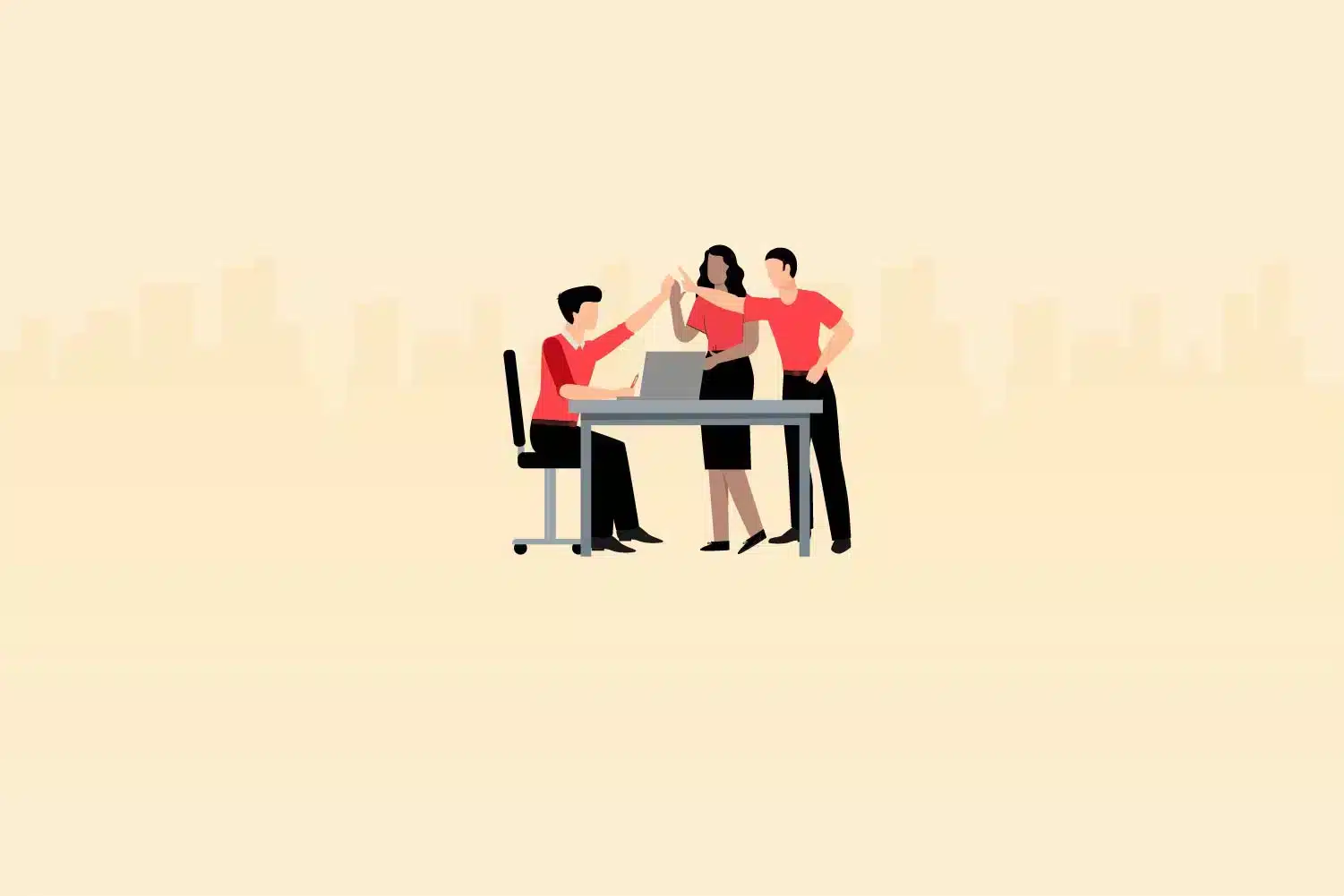As the business world becomes increasingly complex and projects grow in scale and scope, the role of the Project Administrator has gained significant prominence. With the rapidly evolving landscape of project management, organizations are realizing the crucial need for skilled professionals to ensure the successful execution of their initiatives. Recent analytics reveal that the demand for Project Administrators has experienced a substantial upswing, driven by the growing emphasis on effective project planning, coordination, and stakeholder management.
In this competitive era, HR professionals and CXOs are recognizing the indispensable value that Project Administrators bring to the table, and as a result, are actively seeking top talent to fill these crucial roles. In this context, it becomes imperative for organizations to identify individuals who possess the right blend of organizational, communicative, and problem-solving skills. To assist HR professionals and CXOs in their quest for exceptional Project Administrators, we have curated a set of interview questions that delve into the core competencies required for this role.
Here are the top 60 Project Administrator interview questions to ask job applicants:
15 general interview questions for the Project Administrator
- Can you walk us through your experience in managing and coordinating projects? How do you approach project planning, execution, and monitoring?
- Describe a challenging project you worked on. How did you ensure effective communication and collaboration among team members and stakeholders?
- How do you prioritize tasks and manage competing deadlines in a project environment? Can you provide an example?
- In your opinion, what are the key elements of a successful project plan? How do you ensure that project goals and objectives are met?
- How do you manage risks and uncertainties in a project? Can you share an example of how you effectively mitigated a project risk?
- What strategies do you employ to ensure effective stakeholder management? How do you handle conflicting priorities and interests among stakeholders?
- How do you track and report project progress to senior management and other stakeholders? Can you share a specific reporting tool or technique you have used?
- Describe a time when you had to handle a project team member who was not meeting expectations. How did you address the situation and ensure project success?
- How do you ensure that project resources are effectively allocated and utilized? Can you provide an example of how you optimized resource allocation in a project?
- What steps do you take to identify and resolve project bottlenecks and obstacles? Can you share an example of how you successfully overcame a project challenge?
- How do you handle project scope changes or scope creep? Can you describe a situation where you managed scope changes without compromising project deliverables?
- Describe a time when you had to make a critical decision under pressure in a project environment. How did you ensure that your decision was effective and aligned with project goals?
- How do you promote team motivation and engagement throughout the project lifecycle? Can you share a team-building initiative or strategy you implemented?
- How do you ensure that project documentation and records are properly maintained? Can you describe your approach to knowledge management in projects?
- How do you stay updated with emerging trends and best practices in project management? Can you share a recent project management technique or methodology you have incorporated into your work?
5 sample answers to general interview questions for the Project Administrator
- Can you walk us through your experience in managing and coordinating projects? How do you approach project planning, execution, and monitoring?
Look for: A candidate who demonstrates a structured and organized approach to project management, including a clear understanding of planning, execution, and monitoring processes.
Example answer: “In my previous role as a Project Administrator, I successfully managed several projects by following a systematic approach. During the planning phase, I thoroughly analyze project requirements, define clear objectives, and create a comprehensive project plan with detailed tasks and timelines. In the execution phase, I coordinate with team members, assign responsibilities, and ensure a smooth workflow. To monitor progress, I implement regular status meetings, track key performance indicators, and utilize project management software to identify any deviations and take corrective actions promptly.”
- How do you prioritize tasks and manage competing deadlines in a project environment? Can you provide an example?
Look for: A candidate who demonstrates effective prioritization skills, an ability to handle multiple tasks simultaneously, and the capability to meet deadlines under pressure.
Example answer: “Prioritizing tasks and managing deadlines is essential for project success. In my previous project, we had multiple concurrent tasks with varying priorities. I utilized the Eisenhower Matrix to categorize tasks based on urgency and importance. By analyzing critical dependencies and allocating resources accordingly, I ensured that high-priority tasks were completed on time. I also maintained open communication channels with stakeholders to manage expectations and proactively addressed any challenges that could potentially impact project timelines.”
- How do you track and report project progress to senior management and other stakeholders? Can you share a specific reporting tool or technique you have used?
Look for: A candidate who demonstrates strong communication skills, an ability to present project information effectively, and experience with relevant reporting tools or techniques.
Example answer: “In my previous role, I regularly reported project progress to senior management and stakeholders. I utilized a combination of visual dashboards, progress reports, and presentations to provide a comprehensive overview of the project status. One specific tool I used was Gantt charts, which helped visualize project timelines, milestones, and dependencies. I found that this graphical representation facilitated clear communication and allowed stakeholders to quickly grasp the project’s current state.”
- How do you handle project scope changes or scope creep? Can you describe a situation where you managed scope changes without compromising project deliverables?
Look for: A candidate who demonstrates strong change management skills, an ability to evaluate the impact of scope changes and experience in negotiating scope adjustments while maintaining project objectives.
Example answer: “During a recent project, we encountered scope changes due to evolving client requirements. To manage these changes, I followed a structured approach. First, I carefully evaluated the impact of the proposed changes on the project timeline, budget, and deliverables. Then, I engaged in thorough discussions with stakeholders to assess the necessity and urgency of the changes. Through effective negotiation and by clearly defining the implications of scope adjustments, we were able to reach a consensus without compromising the project’s overall objectives and deadlines.”
- How do you promote team motivation and engagement throughout the project lifecycle? Can you share a team-building initiative or strategy you implemented?
Look for: A candidate who demonstrates leadership qualities, an ability to foster a positive team culture, and experience implementing initiatives that promote motivation and engagement.
Example answer: “To maintain team motivation and engagement, I believe in creating a positive and collaborative work environment. In a previous project, I implemented regular team-building activities such as off-site retreats, team lunches, and recognition programs. These initiatives helped foster strong relationships among team members, boosted morale, and increased overall productivity. Additionally, I encouraged open communication, recognized individual and team achievements, and provided opportunities for professional growth and development through training and mentoring programs.”
15 behavioral interview questions for a Project Administrator
- Tell me about a time when you had to handle multiple competing priorities in a project. How did you manage your time and ensure that all tasks were completed successfully?
- Describe a situation where you faced resistance from stakeholders during a project. How did you handle the resistance and ensure alignment towards project goals?
- Can you share an example of a project where you encountered unexpected challenges or obstacles? How did you adapt and navigate through those challenges?
- Tell me about a project that required you to collaborate with individuals from different departments or teams. How did you establish effective cross-functional collaboration?
- Describe a time when you had to resolve a conflict within your project team. How did you approach the situation and what was the outcome?
- Can you share an example of a project where you had to manage a tight budget? How did you ensure cost-effective solutions and minimize budget overruns?
- Tell me about a project that required you to manage a remote or distributed team. How did you ensure effective communication and collaboration despite the geographical distance?
- Describe a situation where you had to make a critical decision that impacted the project’s timeline or resources. How did you weigh the options and communicate your decision to stakeholders?
- Can you share an example of a project where you had to adjust the project plan due to changing requirements or unforeseen circumstances? How did you manage the changes while keeping the project on track?
- Tell me about a project where you had to work under tight deadlines. How did you prioritize tasks and ensure timely delivery?
- Describe a time when you had to provide project updates or reports to senior management or executives. How did you effectively communicate project progress, challenges, and recommendations?
- Can you share an example of a project where you had to lead a team through a major transition or change? How did you manage resistance and ensure a smooth transition?
- Tell me about a project that involved significant risk management. How did you identify and assess risks, and what strategies did you employ to mitigate those risks?
- Describe a situation where you had to handle scope changes without compromising project objectives. How did you manage stakeholder expectations and ensure project success?
- Can you share an example of a project where you had to incorporate new technologies or tools to improve project efficiency or outcomes? How did you introduce and implement these changes within the project team?
5 sample answers to behavioral interview questions for the Project Administrator
- Tell me about a time when you had to handle multiple competing priorities in a project. How did you manage your time and ensure that all tasks were completed successfully?
Look for: A candidate who demonstrates strong organizational and time management skills, as well as the ability to prioritize effectively and meet deadlines.
Example answer: “In a previous project, I faced a situation where multiple tasks had overlapping deadlines. To manage this, I first assessed the urgency and importance of each task using the Eisenhower Matrix. I then developed a detailed project schedule, breaking down tasks into manageable chunks and allocating dedicated time for each. By setting realistic deadlines, delegating tasks to team members, and providing clear instructions, I ensured that all deliverables were completed on time and to the desired quality.”
- Describe a situation where you faced resistance from stakeholders during a project. How did you handle the resistance and ensure alignment toward project goals?
Look for: A candidate who displays strong communication and negotiation skills, as well as the ability to build positive relationships with stakeholders and address their concerns effectively.
Example answer: “During a project, I encountered resistance from a key stakeholder who was skeptical about the proposed changes. To address this, I scheduled a meeting to understand their concerns and actively listened to their perspective. I then explained the rationale behind the project, highlighting the potential benefits and addressing any misconceptions. Through transparent communication and continuous engagement, I was able to gain their trust, address their concerns, and align their interests with the project goals. Ultimately, the stakeholder became a strong advocate for the project.”
- Can you share an example of a project where you encountered unexpected challenges or obstacles? How did you adapt and navigate through those challenges?
Look for: A candidate who demonstrates resilience, problem-solving skills, and the ability to think creatively under pressure.
Example answer: “During a project, we faced a sudden resource shortage due to a team member’s unexpected departure. This significantly impacted the project timeline and deliverables. To address this challenge, I quickly assessed the skills and availability of the remaining team members and restructured tasks to ensure optimal resource allocation. I also leveraged my network to bring in external expertise on a temporary basis. By proactively addressing the issue, managing expectations, and adjusting the project plan accordingly, we were able to mitigate the impact and successfully complete the project on time.”
- Tell me about a project that required you to collaborate with individuals from different departments or teams. How did you establish effective cross-functional collaboration?
Look for: A candidate who demonstrates strong interpersonal and collaboration skills, as well as the ability to bridge gaps between different teams and departments.
Example answer: “In a cross-functional project, I recognized the importance of fostering effective collaboration among diverse teams. To establish clear lines of communication and coordination, I organized regular meetings with representatives from each department. I encouraged open and transparent communication, ensured everyone had a shared understanding of project goals and objectives, and provided a platform for discussing challenges and resolving conflicts. By fostering a collaborative environment, we enhanced knowledge sharing, streamlined processes, and successfully achieved project milestones.”
- Describe a time when you had to provide project updates or reports to senior management or executives. How did you effectively communicate project progress, challenges, and recommendations?
Look for: A candidate who demonstrates strong presentation and reporting skills, as well as the ability to distill complex information into clear and concise updates for senior stakeholders.
Example answer: “During a project, I regularly provided updates to senior management through concise and visually engaging presentations. I focused on highlighting key milestones, progress against targets, and any significant challenges or risks. I utilized visual aids such as charts and graphs to make the information easily digestible. Additionally, I always came prepared with recommended solutions or mitigation strategies for any challenges encountered, ensuring that I provided a comprehensive view of the project while keeping the information concise and actionable for the senior stakeholders.”
15 personality interview questions for the Project Administrator
- How do you handle stress and pressure in a fast-paced project environment? Can you provide an example of a high-pressure situation you successfully managed?
- Describe your approach to problem-solving. How do you tackle complex issues or challenges that arise during a project?
- Can you share an example of a time when you demonstrated strong attention to detail and accuracy in your work as a Project Administrator?
- How do you ensure effective communication and collaboration within a project team? Can you provide an example of a time when you facilitated open communication and teamwork?
- Describe a situation where you had to adapt to changes or unexpected circumstances in a project. How did you handle the situation and ensure project success?
- How do you prioritize and manage your own workload to meet project deadlines? Can you share a specific time when you effectively managed multiple tasks?
- Describe a project where you had to take a leadership role. How did you motivate and inspire team members to achieve project goals?
- How do you handle feedback and constructive criticism? Can you share an example of a time when you received feedback and used it to improve your performance as a Project Administrator?
- Describe a time when you had to make a decision with limited information or ambiguous requirements. How did you gather the necessary information and make an informed decision?
- How do you foster a positive and inclusive team culture in a project setting? Can you provide an example of a time when you promoted collaboration and diversity within a team?
- Describe your approach to risk management in projects. How do you identify and mitigate potential risks or issues?
- How do you stay organized and ensure that project documentation and records are accurate and up to date? Can you provide an example of your attention to detail in maintaining project documentation?
- How do you handle conflicts or disagreements within a project team? Can you share an example of a time when you successfully resolved a conflict and restored team harmony?
- Describe a project where you had to manage competing stakeholder interests. How did you ensure that the project goals were aligned with the stakeholders’ expectations?
- How do you approach continuous improvement and learning in project management? Can you share an example of how you have implemented new strategies or methodologies to enhance project outcomes?
5 sample answers to personality interview questions for Project Administrator
- How do you handle stress and pressure in a fast-paced project environment? Can you provide an example of a high-pressure situation you successfully managed?
Look for: A candidate who demonstrates resilience, adaptability, and the ability to stay calm under pressure.
Example answer: “In a fast-paced project environment, I handle stress and pressure by prioritizing tasks, breaking them down into manageable chunks, and maintaining open communication with the team. In a previous project, we encountered a critical issue that threatened the project timeline. The team was under immense pressure to find a solution quickly. Instead of panicking, I gathered the team, encouraged collaboration, and assigned specific responsibilities to address different aspects of the problem. By remaining calm and focused, we were able to identify the root cause, implement a workaround, and successfully resolve the issue within the deadline.”
- How do you ensure effective communication and collaboration within a project team? Can you provide an example of a time when you facilitated open communication and teamwork?
Look for: A candidate who demonstrates strong interpersonal skills, active listening, and the ability to foster a collaborative team environment.
Example answer: “To ensure effective communication and collaboration within a project team, I prioritize open and transparent communication channels. In a recent project, we had team members located in different time zones, making communication challenging. To address this, I implemented regular virtual team meetings to discuss project progress, challenges, and upcoming tasks. I also encouraged team members to share their ideas, concerns, and suggestions openly. By creating a safe and inclusive space for communication, we fostered a collaborative environment where everyone felt heard and valued, resulting in increased productivity and better outcomes.”
- How do you foster a positive and inclusive team culture in a project setting? Can you provide an example of a time when you promoted collaboration and diversity within a team?
Look for: A candidate who demonstrates leadership skills, empathy, and the ability to create an inclusive work environment.
Example answer: “Fostering a positive and inclusive team culture is essential for project success. In a previous project, I implemented team-building activities that promoted collaboration and celebrated diversity. One initiative was organizing cross-departmental lunch sessions, where team members from different functional areas had the opportunity to connect, share insights, and build relationships. Additionally, I encouraged each team member to contribute their unique perspectives and ideas during project meetings and decision-making processes. By embracing diversity and promoting a culture of inclusion, we created a cohesive and high-performing team that effectively tackled project challenges.”
- How do you approach continuous improvement and learning in project management? Can you share an example of how you have implemented new strategies or methodologies to enhance project outcomes?
Look for: A candidate who demonstrates a growth mindset, a willingness to learn, and the ability to proactively seek opportunities for improvement.
Example answer: “I believe in continuous improvement and learning in project management. In a recent project, I identified an opportunity to streamline our project tracking and reporting processes. I researched and implemented a project management software that automated task tracking, enabled real-time collaboration, and provided comprehensive project analytics. I organized training sessions for the team to ensure the smooth adoption of the new tool. This implementation significantly improved project efficiency reduced manual effort, and enhanced the accuracy and timeliness of our project reports.”
- How do you handle conflicts or disagreements within a project team? Can you share an example of a time when you successfully resolved a conflict and restored team harmony?
Look for: A candidate who demonstrates strong conflict resolution skills, the ability to mediate disagreements, and promote positive team dynamics.
Example answer: “In a project, conflicts and disagreements are inevitable. When conflicts arise, I approach them constructively by initiating a private conversation with the involved parties to understand their perspectives and concerns. In a particular project, two team members had conflicting ideas on how to approach a critical task. I facilitated a team meeting where I encouraged open dialogue and active listening. By allowing each team member to express their viewpoints and concerns, we were able to find common ground and develop a compromise that incorporated the strengths of both ideas. Through effective conflict resolution, we not only resolved the issue but also strengthened the team’s trust and collaboration.”
When should you use skill assessments in your hiring process for Project Administrator?
Skill assessments should be used in the hiring process for Project Administrators to ensure that candidates possess the necessary skills and competencies required for the role. Assessments provide objective measures of a candidate’s abilities, helping to validate their claims and qualifications.
Assessments are important because they provide a standardized and unbiased evaluation of a candidate’s skills. They go beyond what can be observed through interviews and resumes, allowing employers to assess specific skills such as project management, communication, problem-solving, organization, and attention to detail. By using assessments, employers can make informed hiring decisions based on concrete evidence of a candidate’s abilities.
Several assessments can be used to assess the skills of Project Administrators. Some commonly used assessments include:
- Project Management Assessments
These assess a candidate’s knowledge and understanding of project management principles, methodologies, and tools. They may include scenario-based questions or simulations to evaluate the candidate’s ability to handle project-related tasks and challenges.
- Communication and Interpersonal Skills Assessments
These assess a candidate’s written and verbal communication skills, as well as their ability to collaborate and interact effectively with team members, stakeholders, and clients. They may involve written exercises, role-playing scenarios, or oral presentations.
- Problem-Solving and Critical Thinking Assessments
These assess a candidate’s ability to analyze complex problems, think critically, and come up with practical solutions. They may involve hypothetical scenarios or case studies that require the candidate to demonstrate their problem-solving skills.
- Attention to Detail and Organizational Skills Assessments
These assess a candidate’s ability to manage and organize project documentation, schedules, and tasks. They may involve exercises that test the candidate’s attention to detail, time management skills, and ability to prioritize tasks.
Using skill assessments in the hiring process for Project Administrators ensures that candidates possess the necessary skills to effectively manage projects and contribute to the success of the organization. It helps identify the most qualified candidates, reduces hiring bias, and increases the likelihood of hiring individuals who can excel in the role.
Use our interview questions and skill tests to hire a talented Project Administrator
Unlock the potential of your hiring process with Testlify’s comprehensive skill assessments and interview questions specifically designed for Project Administrator.
Our extensive test library offers a wide range of assessments, including cognitive function, personality, situational judgment, programming, and more. By leveraging these assessments, you can objectively evaluate candidates’ abilities, ensuring you shortlist the most talented individuals efficiently.
To further enhance your hiring process, we invite you to book a free 30-minute live demo. Our expert team will guide you through the platform, showcasing relevant skill tests tailored to your hiring needs. With our support, you can streamline candidate selection, saving valuable time and resources.
Ready to find the perfect fit for your Project Administrator role? Testlify provides the tools you need to make informed hiring decisions. Explore our skill assessments and interview questions today to uncover exceptional talent for your team.








